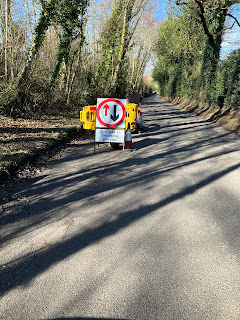It’s pretty old news now, but worth summarising yesterday’s Kent County Council election results. The pace of events yesterday left no time to post.
So, firstly, the executive summary: the Conservatives are out, and I’m out.
Here is the result for Sevenoaks North and Darent Valley:
Marc Logen (Reform UK) 2,133 (37%)
Roger Gough (Conservative) 1,945 (33%)
Adam Durbaba (Liberal Democrat) 1,103 (19%)
Michael Barker (Green Party) 387 (7%)
Ben Davies (Labour) 283 (5%)
My warm congratulations to Marc Logen on his election. We had a good conversation at yesterday’s count and I wish him very well. He has, as I have had for 20 years, the great good fortune to represent a truly wonderful part of Kent.
The result is a huge reversal from 2021, and from previous elections. Yet it was just part of a wider rout for the Conservatives across Kent, and the country. (The elections were also very poor for Labour, but they had many fewer seats to defend). At KCC, the Conservatives now have just 5 seats out of 81 (we won 62 in 2021). Reform UK took 57 seats and will form the new administration; the Liberal Democrats, with 12 seats, will be the opposition. Across the country, we lost 676 of the 993 council seats that we were defending.
I have given a lot of interviews since the results were announced, including one for the Today Programme this morning (there is a clip at around 8:33). My view is that the Conservatives are still paying the price for aspects of our record in government, especially in 2021-22, and have to fight hard for a right to be heard, even as any goodwill towards the Labour government is rapidly dissipated.
I also wish the new Reform administration well as they take over at County Hall. Too much - for the council and for the county - rides on their success for anyone to wish otherwise. I did not, though, see anything in the campaign to suggest serious engagement on their part with the big challenges and pressures that face the council (such as adult social care, children’s services and SEND). It is up to them to surprise us.


